The Roundup Top Ten for February 24, 2023

Ron DeSantis is Making History a Political Issue; What does His Book Say?by David WaldstreicherNobody paid much attention to the Florida governor's 2011 book "Dreams from Our Founding Fathers." Maybe we should now—it spells out a justification for a deeply conservative view of the constitution that dismisses the significance of racism in the founding and in the doctrine of originalism. |
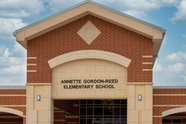
One Historian's Journey Comes Full Circle in Her Hometownby Annette Gordon-ReedAfter Brown v. Board, the schools in Conroe, Texas preserved segregation under the guise of "freedom of choice"—backed by custom and a history of racist violence. In 1964, Alfred and Bettye Jean Gordon enrolled their daughter in a previously all-white school. This year, the town named a new school for her. |
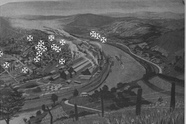
The East Palestine Disaster Echoes 1948's Killer Smog in Donora, PAby Cassondra HannaDespite the decline of rust belt industry, the Ohio Valley remains a backbone of the industrial transportation sector, making its residents uniquely vulnerable to acute toxic pollution if profits are allowed to outweigh environmental safety. |
Silicon Valley Was and Is The Child of the Military-Industrial Complexby Jeannette Estruth"The technology sector attributes its economic power to its own creativity and rogue innovation, but throughout its history it has been dependent on the federal budget." |
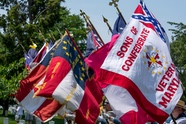
Who's Afraid of Black History?by Henry Louis GatesThe protestations of Ron DeSantis aside, American schools today carry the legacy of a massive neoconfederate indoctrination campaign that distorted the meaning of the Civil War, Reconstruction and Jim Crow, justified racist terrorism, and erased ongoing debates—including among Black Americans—about the meaning of freedom and democracy. |
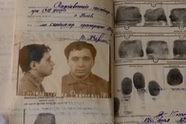
Russia's Invasion Threatens Soviet Police Archives in Ukraine—and Families' Historyby Megan BuskeyDuring a brief recent window of time, records of Soviet secret police activities in Ukraine, including voluminous files kept on ordinary civilians, have become available to researchers. While pro-Russian politicians once kept them classified, Russian munitions now threaten their physical existence. |

What the Rejection of African American History Means for Studentsby Monica WashingtonWhen a state decides to minimize African American history and thought in its curriculum, it marks that history as "other" and denies all students the opportunity to understand the national past and the prospects for realizing democratic values in the future. |
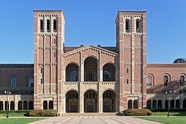
When the Public University is a Corporate Landlordby Charmaine Chua, Desiree Fields and David SteinDuring negotiations with graduate student workers, UCLA administrators claimed that increasing stipends would effectively subsidize local landlords through higher rents and squeeze the poor in the Los Angeles housing market. The reality is that the university is an investor in a huge real estate trust that is hiking rents itself. |

AHA's "New" Standards for "Scholarship" are Too Little, Too Late for the Professionby Donald Earl CollinsThe move to recognize forms of knowledge dissemination beyond the scholarly monograph follow the establishment's failure for years to recognize the need for public engagement that has recently been taken up by journalists, novelists, and other creatives. |
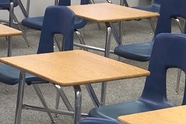
Can a "Return to Normal" Happen Without Repairing Sociability?by Nate HoldrenThe push to return to many pre-pandemic modes of working and living is taking place without sufficient provision for mitigating risk, and with seriously damaged bonds of trust and mutual support; people are again in proximity to each other, but far from being together. |